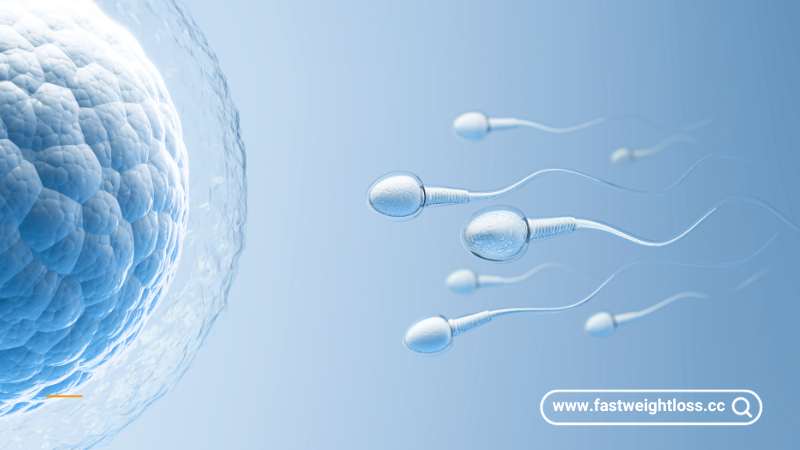To increase sperm count, maintain a balanced diet and lifestyle, and consider natural supplements or medical treatments. When it comes to fertility, a healthy sperm count plays a crucial role.
Low sperm count can lead to difficulties in conceiving and can be caused by various factors such as poor diet, stress, lack of exercise, and certain medical conditions. Fortunately, there are steps you can take to boost your sperm count and improve your chances of fathering a child.
We will explore some effective ways to increase sperm count naturally. We will discuss the importance of a nutritious diet, the benefits of regular exercise, the role of stress management, and the potential use of natural supplements or medical treatments. By following these approaches, you can enhance your fertility and increase your chances of conception.
Understanding The Role Of Sperm Count In Fertility
Understanding the impact of sperm count on fertility is crucial for couples trying to conceive. Discover effective techniques to naturally increase sperm count and boost your chances of conception.
How Sperm Count Affects Fertility
Understanding the role of sperm count in fertility is crucial for couples trying to conceive. Sperm count refers to the number of sperm cells present in a man’s ejaculate. It plays a vital role in determining the potential for successful fertilization. When it comes to fertility, the quantity and quality of sperm are significant factors.
High sperm count increases the chances of successful conception because it improves the likelihood of at least one sperm reaching and fertilizing the egg. On the other hand, low sperm count can significantly reduce the chances of conception, making it more difficult for sperm to reach the egg and successfully fertilize it.
A healthy sperm count is generally considered to be around 15 million sperm per milliliter of semen. However, even if the sperm count falls slightly below this range, successful fertilization can still be possible in some cases.
Factors That Can Contribute To Low Sperm Count
There are several factors that can contribute to a low sperm count, making conception more challenging. These factors can include:
- Varicocele: This is a common condition in which the veins in the testicles become enlarged and can lead to increased testicular temperature, negatively affecting sperm production and quality.
- Hormonal imbalances: Imbalances in hormones such as testosterone, luteinizing hormone (LH), and follicle-stimulating hormone (FSH) can interfere with sperm production and reduce sperm count.
- Age: As men age, their sperm count and quality tend to decrease. Advanced age can also increase the risk of genetic abnormalities in sperm.
- Lifestyle factors: Certain lifestyle choices such as smoking, excessive alcohol consumption, drug use, obesity, and prolonged exposure to environmental toxins can all contribute to lower sperm count.
- Medical conditions: Certain medical conditions such as infections, diabetes, hypertension, and autoimmune disorders can affect sperm production and lead to a decrease in sperm count.
- Medications and treatments: Certain medications, such as those used for chemotherapy or radiation therapy, can affect sperm production. Additionally, frequent exposure to heat, such as from using saunas or hot tubs, can also temporarily lower sperm count.
It’s essential to identify and address any factors that may be contributing to low sperm count. By making positive lifestyle changes, seeking appropriate medical treatment, and optimizing overall health, it is possible to improve both sperm count and fertility potential.
Assessing Your Current Sperm Count
When it comes to male fertility, assessing your current sperm count is a crucial step towards understanding your reproductive health. A semen analysis, also known as a sperm count test, provides valuable insights into the quantity and quality of your sperm. This comprehensive examination helps you determine if your sperm count is within the normal range or if there are any underlying issues that may be affecting your fertility. In this article, we will discuss the importance of semen analysis, how to prepare for the test, and how to interpret the results.
The Importance Of Semen Analysis
Semen analysis plays an essential role in diagnosing male infertility. It assesses several key parameters, including sperm count, sperm motility, and sperm morphology. These factors collectively determine the overall quality of the semen and the fertilization potential. By evaluating these parameters, healthcare professionals can identify potential causes of infertility and develop an appropriate treatment plan.
A semen analysis can provide valuable information about your reproductive health, helping you understand your chances of conceiving naturally. It can also identify issues that may require medical intervention, such as low sperm count, poor sperm motility, or abnormal sperm morphology.
How To Prepare For A Semen Analysis
Before undergoing a semen analysis, it is crucial to properly prepare to ensure accurate results. Here are some important steps to follow:
- Refrain from ejaculation for at least 2-3 days prior to the test. This period of abstinence allows for the build-up of sperm count, ensuring a representative sample.
- Avoid alcohol, tobacco, and caffeine for at least 48 hours before the test, as these substances can potentially affect sperm quality.
- Inform your healthcare provider about any medications or supplements you are taking, as certain medications can impact sperm production.
- Collect the semen sample in a sterile container provided by the clinic. Follow the specific instructions given to you to ensure the sample is collected correctly.
Interpreting The Results
Once you receive the results of your semen analysis, understanding what they mean is crucial. The analysis will typically provide information about various parameters, such as:
| Parameter | Normal Range |
|---|---|
| Sperm Count | 15 million or more sperm per milliliter |
| Sperm Motility | At least 40% of sperm showing forward movement |
| Sperm Morphology | At least 4% of sperm with normal shape and size |
These values serve as guidelines, and any deviations from them may indicate potential fertility issues. Consulting with a healthcare professional specializing in reproductive medicine will help you understand the results in detail and determine the next steps.
Eating A Nutrient-rich Diet
Eating a nutrient-rich diet is crucial for maintaining overall health, and it can also have a positive impact on sperm count. The foods we consume play a significant role in sperm production, quality, and motility. By incorporating specific foods into your daily diet, you can support the natural production of healthy and abundant sperm. In addition to consuming the right foods, it’s equally important to focus on essential nutrients that are vital for the development and maintenance of healthy sperm.
Foods That Promote Sperm Production
Certain foods are known to promote sperm production and enhance overall fertility. Including these foods in your diet can help increase your sperm count:
- Leafy Green Vegetables: Spinach, kale, and other leafy greens are packed with essential antioxidants that protect sperm cells from damage.
- Fatty Fish: Fish like salmon, tuna, and sardines are rich in omega-3 fatty acids, which improve sperm quality and motility.
- Pomegranates: Packed with antioxidants, pomegranates can help increase blood flow to the testicles, promoting sperm production.
- Walnuts: These nuts are an excellent source of omega-3 fatty acids, zinc, and selenium, all of which play a role in improving sperm health.
- Citrus Fruits: Oranges, grapefruits, and other citrus fruits are rich in vitamin C, which helps prevent sperm cell damage and enhances motility.
- Dark Chocolate: Dark chocolate is not only a delicious treat but also contains antioxidants that can boost sperm count and quality.
Nutrients Essential For Healthy Sperm
Ensuring that you consume an adequate amount of essential nutrients is crucial for maintaining healthy sperm. These key nutrients play a vital role in sperm development, ensuring the quality, motility, and overall fertility:
| Nutrient | Sources |
|---|---|
| Zinc | Lean meats, poultry, beans, nuts, and fortified cereals |
| Vitamin C | Citrus fruits, berries, kiwi, peppers, and broccoli |
| Vitamin E | Almonds, sunflower seeds, spinach, and avocados |
| Selenium | Brazil nuts, tuna, eggs, sardines, and fortified bread |
| Coenzyme Q10 | Organ meats, sardines, mackerel, and peanuts |
| Lycopene | Tomatoes, watermelon, papaya, and guava |
By incorporating these nutrient-rich foods into your diet, you can optimize your sperm production and increase your sperm count. Remember to maintain a healthy overall lifestyle, exercise regularly, and avoid smoking and excessive alcohol consumption for the best chances of improving your sperm count naturally.
Staying Active And Managing Stress
Increase your sperm count by staying active and managing stress. Regular exercise and stress reduction techniques can have a positive impact on fertility.
The Link Between Exercise And Sperm Count
Regular physical activity not only keeps your body fit, but it can also have a positive impact on your sperm count. Studies have shown that engaging in moderate-intensity exercise can lead to an increase in sperm quality and quantity. So, if you’re looking for a natural way to boost your fertility, it’s time to lace up those running shoes and hit the gym.
Exercise helps to improve blood circulation throughout the body, including the reproductive system. This increased blood flow delivers essential nutrients and oxygen to the testes, promoting the production of healthy sperm. It also helps to flush out harmful toxins and free radicals that can have a detrimental effect on sperm motility and morphology.
Not only does exercise improve physical health, but it can also have a positive impact on your mental well-being. When you exercise, your body releases endorphins, which are natural mood boosters. This can help to reduce stress and anxiety, which are often major contributors to low sperm count.
Effective Stress Management Techniques
In today’s fast-paced world, managing stress is crucial for maintaining optimal reproductive health. Chronic stress can disrupt hormone levels, interfere with sperm production, and decrease sperm count. Therefore, it’s essential to incorporate effective stress management techniques into your daily routine. Here are some strategies to consider:
- Exercise regularly: Physical activity not only improves sperm count, but it can also help to reduce stress levels. Find an exercise routine that you enjoy, whether it’s going for a run, practicing yoga, or playing your favorite sport.
- Practice relaxation techniques: Incorporating relaxation techniques into your daily routine can help to lower stress levels. Deep breathing exercises, meditation, and progressive muscle relaxation are just a few techniques that have been proven to be effective.
- Engage in hobbies: Finding a hobby that brings you joy and helps you relax can be incredibly beneficial for managing stress. Whether it’s painting, gardening, or playing a musical instrument, make time for activities that allow you to unwind.
- Get enough sleep: A lack of sleep can contribute to stress and negatively impact sperm count. Aim for 7-9 hours of quality sleep each night to ensure your body has enough time to rest and recharge.
- Seek support: Don’t be afraid to reach out to your partner, friends, or a healthcare professional for support. Talking about your feelings and concerns can help to alleviate stress and provide valuable guidance.
By staying active and effectively managing stress, you can significantly increase your sperm count and improve your chances of achieving a successful pregnancy. Remember, it’s important to incorporate these lifestyle changes into your routine consistently, as it may take time to see the full benefits. So, start prioritizing your physical and mental well-being today for a healthier reproductive future.
Avoiding Harmful Substances
The ultimate guide to increasing sperm count is incomplete without discussing the importance of avoiding harmful substances. Certain habits and substances can have a detrimental effect on sperm count and quality. By understanding the impact of smoking, limiting alcohol and drug consumption, men can take proactive steps towards improving their fertility and increasing their chances of conception.
The Impact Of Smoking On Sperm Count
Smoking not only poses serious health risks, but it can also significantly affect male fertility. Research has shown that smoking can decrease sperm count, motility, and morphology. The harmful chemicals found in cigarettes, such as nicotine and carbon monoxide, can damage sperm DNA and impair their ability to fertilize an egg. This highlights the importance of quitting smoking for men who are trying to conceive.
Furthermore, second-hand smoke exposure can also have negative effects on sperm health. Being in environments where smoking is prevalent, such as at work or in social gatherings, can expose men to the harmful effects of tobacco. It’s essential to stay away from smoke-filled places to safeguard sperm count and overall reproductive health.
Limiting Alcohol And Drug Consumption
Excessive alcohol consumption has been associated with a range of health issues, including decreased sperm production and reduced testosterone levels. Studies have indicated that regular heavy drinking can disrupt hormone balance and impede sperm production, leading to lowered sperm count and quality.
Similarly, drug use can have a detrimental impact on sperm count and overall reproductive health. Substances such as marijuana, cocaine, and anabolic steroids have been shown to disrupt normal hormone production and impair sperm development. It is crucial to abstain from drug use and limit alcohol consumption to maintain optimal sperm health.
In addition to avoiding harmful substances, adopting a healthy lifestyle can further enhance fertility. Engaging in regular exercise, maintaining a balanced diet, and managing stress levels are essential steps toward increasing sperm count. By taking these measures, men can maximize their fertility potential and take control of their reproductive health.
Herbal Supplements For Sperm Count Enhancement
When it comes to boosting sperm count, there are several natural options to consider, one of which is herbal supplements. With their unique blend of potent ingredients, these supplements have gained popularity among individuals seeking to enhance their fertility. In this article, we will explore specific herbs with proven fertility benefits and provide recommended dosage and usage guidelines.
Specific Herbs With Proven Fertility Benefits
If you’re looking to increase your sperm count naturally, incorporating certain herbs into your daily routine can be an effective strategy. Here are some specific herbs that have shown promising results in improving sperm count:
- Ashwagandha: This ancient herb has been used for centuries in Ayurvedic medicine. Ashwagandha has demonstrated sperm-enhancing properties, promoting healthy sperm production and motility.
- Maca: Originating from the Peruvian Andes, maca is a nutrient-rich herb that has been associated with increased sperm count and improved sperm quality.
- Tribulus terrestris: Derived from a Mediterranean plant, tribulus terrestris has long been used in traditional medicine to support male reproductive health. It has been found to potentially enhance sperm production and motility.
Recommended Dosage And Usage Guidelines
When taking herbal supplements for sperm count enhancement, it is crucial to follow recommended dosage and usage guidelines. These recommendations can vary depending on the specific herb and the product formulation. Here are some general guidelines to consider:
| Herb | Recommended Dosage | Usage Guidelines |
|---|---|---|
| Ashwagandha | 500-1,000 mg per day | Take with food for better absorption |
| Maca | 1,500-3,000 mg per day | Start with a lower dosage and gradually increase |
| Tribulus terrestris | 500-1,000 mg per day | Take with meals |
It is essential to note that individual responses to herbal supplements may vary. Therefore, it is advisable to consult with a healthcare professional or a qualified herbalist before starting any new supplement regimen, especially if you have any underlying health conditions or are taking medication.
Incorporating herbal supplements into your daily routine, along with maintaining a healthy lifestyle, can contribute to an overall improvement in sperm count and fertility. However, it is essential to remember that herbal supplements are not a substitute for medical advice or treatment.
Disclaimer: This content is for informational purposes only and does not constitute medical advice. Always consult with a healthcare professional before starting any new supplement or treatment.Lifestyle Habits That Support Sperm Health
When it comes to male fertility, the quality and quantity of sperm play a crucial role. While there can be various factors that affect sperm count, incorporating certain lifestyle habits can significantly support sperm health. Maintaining optimal weight and body composition, prioritizing sleep, and adopting other healthy habits can make a substantial difference in sperm production and quality.
Maintaining Optimal Weight And Body Composition
Obesity can have a negative impact on sperm health and fertility. Research shows that excess body fat can lead to hormonal imbalances, decreased testosterone levels, and impaired sperm production. To support sperm health, it is important to maintain a healthy weight and body composition.
Here are some tips to help you achieve and maintain an optimal weight:
- Eat a balanced diet that includes a variety of fruits, vegetables, lean proteins, whole grains, and healthy fats.
- Avoid processed foods, sugary snacks, and drinks high in added sugars.
- Engage in regular physical activity, such as aerobic exercises, strength training, or yoga.
- Avoid excessive alcohol consumption, as it can negatively impact sperm production.
Sleep And Its Impact On Sperm Quality
Adequate sleep is essential for overall health, and it also has a significant impact on sperm quality. Poor sleep patterns and chronic sleep deprivation can lead to lower sperm count and impaired fertility. To support sperm health, it is important to prioritize sleep and establish a regular sleep routine.
Here are some tips to improve your sleep quality:
- Stick to a consistent sleep schedule, going to bed and waking up at the same time every day, even on weekends.
- Create a sleep-friendly environment by keeping your bedroom dark, quiet, and cool.
- Avoid electronic devices, such as smartphones or laptops, at least one hour before bedtime.
- Engage in relaxation techniques, such as deep breathing or meditation, to promote better sleep.
By following these lifestyle habits that support sperm health, you can improve your chances of increasing sperm count and enhancing overall fertility. Remember that making positive changes takes time, so be patient and persistent in your efforts. Always consult with a healthcare professional for personalized advice and guidance.
Other Natural Techniques To Boost Sperm Production
When it comes to increasing sperm count, traditional methods are not the only options available. Many natural techniques, such as acupuncture, yoga, and meditation, have gained popularity for their potential benefits in improving fertility. Incorporating these practices into your lifestyle may not only help boost sperm production but also promote overall well-being.
Acupuncture And Its Potential Benefits
Acupuncture, an ancient Chinese therapy, is known for its ability to stimulate the body’s natural healing processes. This technique involves inserting thin needles into specific points on the body, believed to affect the flow of vital energy or “Qi.” When it comes to male fertility, acupuncture can be an effective technique to increase sperm count and improve sperm quality.
Research has shown that acupuncture can help regulate hormones, optimize blood flow to the reproductive organs, and reduce stress levels, all of which are crucial factors for healthy sperm production. By addressing any imbalances in the body, acupuncture can potentially enhance sperm quantity and motility.
The Role Of Yoga And Meditation In Improving Fertility
Yoga and meditation are not just practices for relaxation and stress relief; they can also have a positive impact on fertility. The mind-body connection plays a significant role in reproductive health, and incorporating these practices into your routine can help create a conducive environment for sperm production.
Yoga postures, specifically designed to stimulate the reproductive organs, can help improve blood circulation and oxygen supply, enhancing sperm production. Regular practice of yoga can also improve hormonal balance and reduce oxidative stress, two essential factors for healthy sperm count.
Meditation, on the other hand, helps quiet the mind and reduce anxiety and stress levels. Stress has been linked to decreased fertility in both men and women, so practicing meditation can be beneficial for improving overall reproductive health. By promoting relaxation and reducing stress, meditation may indirectly contribute to increased sperm count.
It is important to remember that these techniques may not provide overnight results, and consistency in practice is key. By embracing these natural methods alongside a healthy lifestyle, proper nutrition, and regular exercise, you can support optimal sperm production and take steps towards improving fertility.
Consulting A Fertility Specialist
When it comes to increasing sperm count, seeking professional help from a fertility specialist can make a significant difference. While there are several natural remedies and lifestyle changes that can boost sperm production, sometimes it may not be enough. Consulting a fertility specialist can help determine the underlying causes of low sperm count and provide appropriate medical interventions.
Signs That It’s Time To Seek Professional Help
If you and your partner have been trying to conceive for over a year without success, it might be time to seek help from a fertility specialist. However, there are certain signs that might indicate the need for immediate professional assistance:
- Persistent low sperm count: If you have consistently low sperm count in multiple semen analyses, it is essential to consult a fertility specialist for a more detailed evaluation.
- Erectile dysfunction: Difficulty getting or maintaining an erection can be an indication of an underlying problem that requires medical attention.
- Abnormal ejaculation: If you have difficulty ejaculating or notice any abnormalities during ejaculation, it’s important to consult a specialist to identify the cause.
- Pain or swelling: Experiencing pain or swelling in the testicles or groin area could be a sign of an underlying medical condition affecting sperm production.
What To Expect During A Fertility Evaluation
A fertility evaluation with a specialist typically involves a comprehensive assessment of both partners’ medical histories and thorough physical examinations. Here’s what you can expect during the evaluation:
- Medical history: The fertility specialist will inquire about your medical history, including any previous surgeries, illnesses, or conditions that might contribute to low sperm count.
- Lifestyle factors: The specialist will ask about your lifestyle habits, such as smoking, alcohol consumption, drug use, and exposure to toxins, which can impact fertility.
- Semen analysis: A semen sample will be analyzed to assess sperm count, motility, morphology, and other factors that can affect fertility.
- Hormonal evaluation: Blood tests may be conducted to check hormone levels, such as testosterone, follicle-stimulating hormone (FSH), and luteinizing hormone (LH).
- Imaging tests: Imaging tests like ultrasound or MRI may be ordered to examine the reproductive organs and identify any abnormalities.
- Genetic testing: In some cases, genetic testing might be recommended to identify any underlying genetic causes of low sperm count.
Once the fertility evaluation is complete, the specialist will discuss the findings with you and your partner. They will then formulate an individualized treatment plan that may include lifestyle modifications, medication, assisted reproductive techniques, or a combination thereof.
Remember, seeking professional help from a fertility specialist can increase your chances of overcoming low sperm count and achieving successful conception. Don’t hesitate to reach out for expert guidance when needed.
Medical Treatments For Low Sperm Count
Medical treatments for low sperm count aim to increase sperm production and improve fertility. Options include hormone therapy, surgery, and assisted reproductive techniques. Consulting a healthcare professional is crucial to determine the most suitable treatment for individuals seeking to increase sperm count.
Medical Treatments for Low Sperm Count If you and your partner have been struggling to conceive due to low sperm count, there are various medical treatments available that may help increase your chances of conception. These treatments are designed to address the underlying causes of low sperm count and improve sperm quality and motility. In this section, we will discuss an overview of the available treatments, as well as the potential risks and success rates associated with each option.Overview Of Available Treatments
There are several medical treatments that can be considered for low sperm count, depending on the specific situation and underlying causes. These treatments often focus on addressing hormonal imbalances, increasing testosterone levels, and improving overall sperm production. Here are some of the common medical treatments used for low sperm count:- Hormone Replacement Therapy (HRT): This treatment involves the administration of hormonal medications to balance hormone levels in the body and improve sperm production. It can be effective for men with hormonal imbalances or low testosterone levels.
- Surgery: In some cases, surgical procedures may be recommended to correct certain issues that can contribute to low sperm count. For example, varicocele repair is a common surgical procedure to treat enlarged veins in the scrotum, which can impair sperm production.
- Intracytoplasmic Sperm Injection (ICSI): ICSI is a specialized form of in vitro fertilization (IVF) that involves the direct injection of a single sperm into an egg to facilitate fertilization. This treatment is often recommended for severe cases of male infertility, including low sperm count.
- Assisted Reproductive Technologies (ART): Various ART techniques, such as intrauterine insemination (IUI) or IVF, may be used to overcome low sperm count and increase the chances of conception. These techniques involve the manipulation and placement of sperm directly into the female reproductive tract to increase the likelihood of fertilization.
Potential Risks And Success Rates
It is important to be aware of the potential risks and success rates associated with medical treatments for low sperm count. While these treatments can offer hope for couples struggling with fertility, they may also come with certain risks. Here is an overview of the potential risks and success rates of each treatment option:| Treatment Option | Potential Risks | Success Rates |
|---|---|---|
| Hormone Replacement Therapy (HRT) | • Allergic reactions or side effects • Increased risk of blood clots • Mood changes and irritability |
Varies based on individual response and cause of low sperm count |
| Surgery | • Infection or bleeding • Damage to nearby organs or tissues • Recurrence of the condition |
Varies based on the cause of low sperm count and success of the surgical intervention |
| Intracytoplasmic Sperm Injection (ICSI) | • Increased risk of multiple pregnancies • Birth defects in offspring • Potential damage to eggs or embryos during the procedure |
Overall success rate ranges from 40% to 80%, depending on various factors including the quality of embryos and the expertise of the fertility clinic |
| Assisted Reproductive Technologies (ART) | • Ovarian hyperstimulation syndrome (OHSS) • Multiple pregnancies and associated complications • Potential side effects of fertility medications |
Success rates vary depending on the specific ART technique used, the age of the female partner, and the quality of sperm and embryos |
Frequently Asked Questions For How To Increase Sperm Count
How Can I Increase My Sperm Count Naturally?
To naturally increase your sperm count, try these methods: maintain a healthy diet and weight, exercise regularly, avoid smoking and excessive alcohol consumption, manage stress levels, and get enough sleep. These practices can help improve your sperm production and overall reproductive health.
How Can I Increase My Sperm Asap?
To increase sperm quickly, try these tips: 1. Stay physically active with regular exercise. 2. Maintain a healthy weight and diet. 3. Get enough sleep and manage stress. 4. Avoid smoking, excessive drinking, and drug use. 5. Have regular sexual activity, but don’t overdo it.
Which Food Improves Sperm?
Certain foods like bananas, spinach, walnuts, and dark chocolate are believed to improve sperm quality. These foods are rich in vitamins, antioxidants, and minerals that support sperm production and motility. However, it is always recommended to have a balanced diet for overall reproductive health.
What Drink Can Increase Sperm Count?
Pomegranate juice can boost sperm count because it contains antioxidants and can improve overall sperm quality.
Conclusion
Optimizing sperm count can be achieved through a combination of lifestyle changes and specific dietary habits. By maintaining a healthy weight, exercising regularly, reducing stress, and incorporating fertility-boosting foods into your diet, you can enhance your chances of achieving a higher sperm count.
Remember, it takes time and consistency to see results, so be patient and persistent in your efforts. Here’s to a fruitful and vibrant reproductive health!
















Add Comment